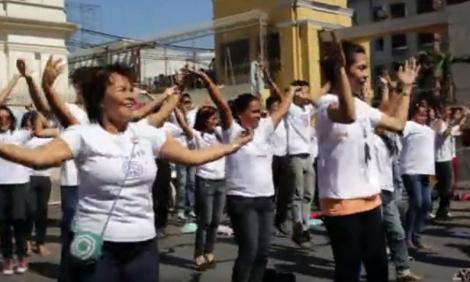
Power of stories to reclaim women's rights
The 2012 "Take Back the Tech! campaign":https://www.takebackthetech.net/, a collaborative campaign that takes place annually during the "16 Days of Activism Against Gender-based Violence":http://16dayscwgl.rutgers.edu/, featured 16 stories for 16 days. Each of these stories presented a different way how…
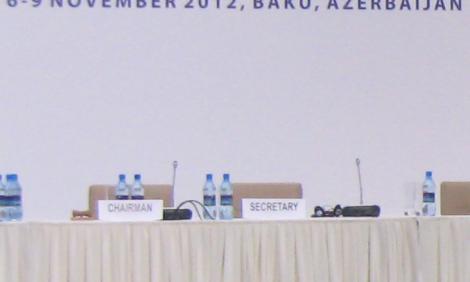
In depth
Women at the IGF: Now we need to mainstream gender
This year's Internet Governance Forum came to a close in Baku, Azerbaijan on 16 November. GenderIT.org contributor Sonia Randhawa spoke to three women about their experiences at the IGF, and whether any progress is being made in terms of the representation of women, and the prominence of women's rights and gender as cross-cutting issues for internet goverance. Jac sm Kee is from Malaysia and…
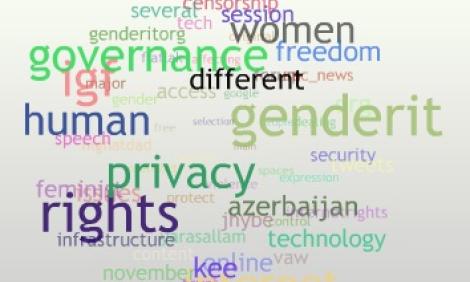
Feminist talk
Women's take on internet governance: A selection of tweets from IGF 2012
This is a selection of the tweets circulated during the Internet Governance Forum in Baku, Azerbaijan, from November 6-9 2012. They were selected following the criteria of its relevance in reflecting the discussions around women’s role in internet governance processes, as well as women’s and internet rights during the IGF.
Feminist talk
Interview with Arzu Geybullayeva on the internet rights of women in Azerbaijan
Nighat Dad from "Digital Rights Foundation, Pakistan":http://www.digitalrightsfoundation.pk speaks to Arzu Geybullayeva, a regional analyst and a blogger from Azerbaijan. Arzu's areas of interest are regional politics, conflict resolution, and new social media. In their "feminist talk” Nighat asks Arzu about her impressions of the 7th…
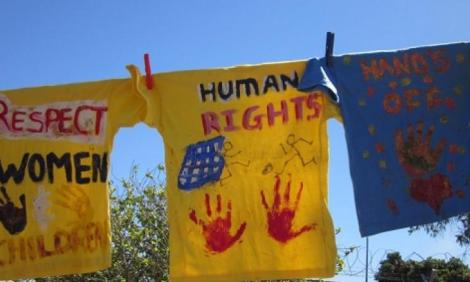
In depth
UPR of South Africa: Connecting the right to communication to women´s rights
South Africa's constitution guarantees freedom of expression, and has been interpreted to include the right to community media and to creative journalistic content. However, these progressive interpretations come in the light of broadcasting, rather than the internet. Online media and its regulation in South Africa fall short of the human rights standards that South Africa has recognised under…
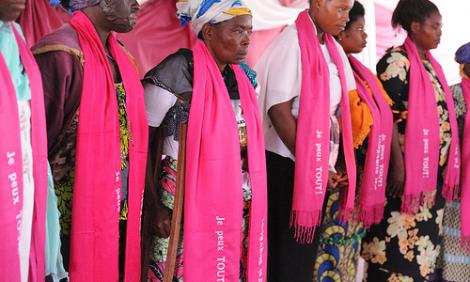
In depth
Going online is the same as going out to a rally
In early April 2012 in Istanbul thirty people from six continents met at the APC “Dialogue on digital security and women's human rights defenders” to discuss regional and global trends on digital security, freedom of expression and freedom of association, and their impact on women's human rights defenders. Katerina Fialova and Sonia Randhawa interviewed two of the participants to interrogate/…
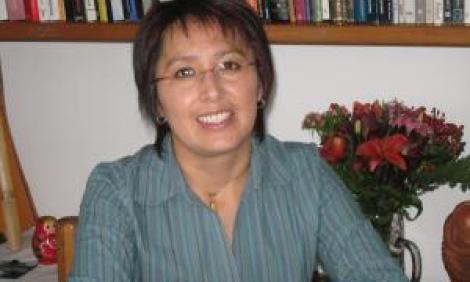
In depth
Opportunities for Ecuadorian women to connect their rights online
In the interview with Flavia Fascendini of GenderIT.org, Valeria Betancourt, manager of APC’s Communications and Information Policy Programme, argues that the incorporation of knowledge transfer through technology, connectivity for the information and knowledge society, and finally, inclusion and the guarantee of human rights within the broad strategies of Ecuador’s National Plan for Good Living…
Publication
Universal Periodic Review: Submission on internet-related human rights issues in India
In the submission, the Digital Empowerment Foundation (DEF) is particularly concerned with making the internet an effective tool to exercise rights to information in India. DEF believes that the internet plays a major role in accessing information and thus a tool for social and economic development. This submission outlines India’s progress and specific areas of concern: information technology…
Publication
APC's submission to the Universal Periodic Review of Ecuador
APC’s submission for Ecuador to the UPR process, with support from CIESPAL and Radialistas Apasionadas y Apasionados, focuses on issues of access to the internet and highlights the critical importance of the internet for human rights, as well as social and economic development. Although the first UPR of Ecuador did not include reference to internet-related human rights issues, the events of 2011…
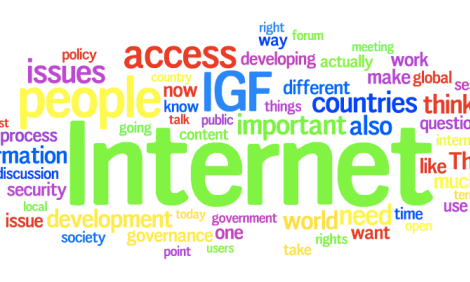
Editorial
Scoring participation – how does change happen for women in the IGF
During the years of my school and university studies, report cards caused me high levels of anxiety but with some underlying optimism. Report cards assumed all-knowing experts were making decisions around my abilities and progress. It would invariably be a measure of success or failure and would expose my weak points and (hopefully) highlight my positive traits. But they always had a judgemental…




